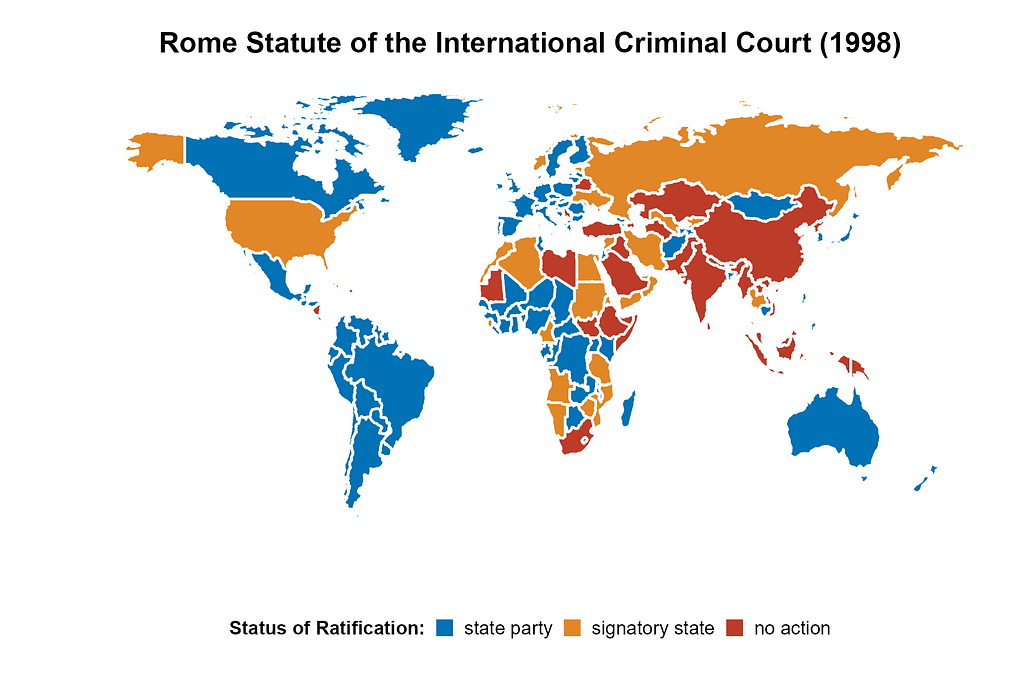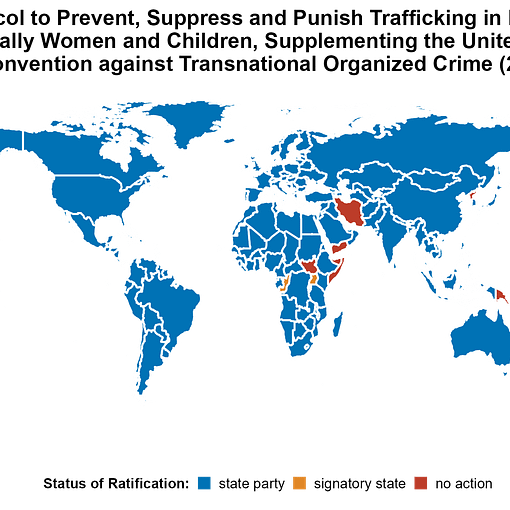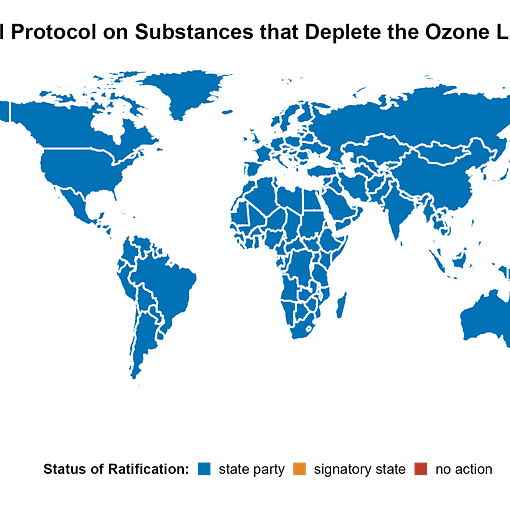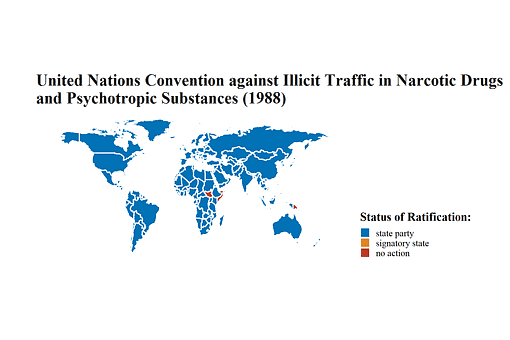The Rome Statute of the International Criminal Court (ICC) laid the groundwork for the establishment of the ICC, a significant development in international law. Adopted at the Rome Conference in 1998 and officially launched in 2002, the ICC differs from the International Court of Justice by focusing on individual accountability rather than resolving disputes between states. Originally, the treaty empowered the court to address genocide, crimes against humanity, and war crimes. Subsequent amendments, notably in 2010, broadened its scope to include crimes of aggression.
Based on data sourced from the UN Treaty Collection’s website, the accompanying map offers insights into states’ adherence to the Rome Statute. While many countries have ratified or signed the treaty, others have taken no action, signaling uncertainty or a deliberate decision not to participate.

The following graph includes a timeline of states’ ratification, highlighting ongoing engagement with the ICC and indicating states’ sustained interest in international justice.

Although the adoption of the Rome Statute signifies advancement in combating impunity, the ICC encounters inherent limitations. Instances where individuals openly flout its authority and disregard its provisions are not uncommon, reflecting broader challenges in enforcing international agreements. Unlike domestic laws with enforcement mechanisms, international treaties lack a global law enforcement body, complicating efforts to ensure compliance.
Despite these challenges, a significant number of countries have ratified the Rome Statute since its inception. However, the withdrawal of two member states, Burundi in 2017 and the Philippines in 2019, highlights concerns about the durability of participation. Burundi’s withdrawal, following an ICC investigation into alleged crimes against humanity, underscores the complex relationship between international accountability and domestic politics. Similarly, President Rodrigo Duterte’s announcement of the Philippines’ withdrawal, amidst an ICC preliminary examination into extrajudicial killings linked to the country’s anti-drug campaign, raises questions about accountability and sovereignty.
The decisions of certain countries to withdraw from the ICC have undoubtedly raised questions regarding the Court’s authority. However, the ICC’s steadfast commitment to pursuing cases against leaders accused of violating internationally accepted human rights standards has played a crucial role in safeguarding its reputation. Despite challenges to its legitimacy, the ICC remains resolute in its mission to uphold justice and accountability on a global scale.
Presently, the ICC is actively engaged in cases spanning various regions worldwide, demonstrating its continued relevance and impact. In addition to ongoing investigations in conflict-ridden areas such as Ukraine and Palestine, the Court remains vigilant in holding perpetrators accountable for grave violations of human rights and international law. Through its unwavering dedication to prosecuting individuals responsible for atrocities, the ICC reaffirms its pivotal role in advancing the cause of justice and ensuring accountability for egregious crimes against humanity.
Overall, the Rome Statute represents a significant step forward in promoting accountability for grave international crimes. However, its effectiveness hinges on broader support and commitment from the international community, as well as addressing the challenges and limitations inherent in its implementation.
About the authors:
Melissa Flores is a senior graduating in May 2024, majoring in Political Science.
Ian McAndrew is a senior graduating in December 2024, majoring in Political Science & minoring in History.
Editor's note: This entry was written for Drew University's PSCI 329 Principles of International Law course.



